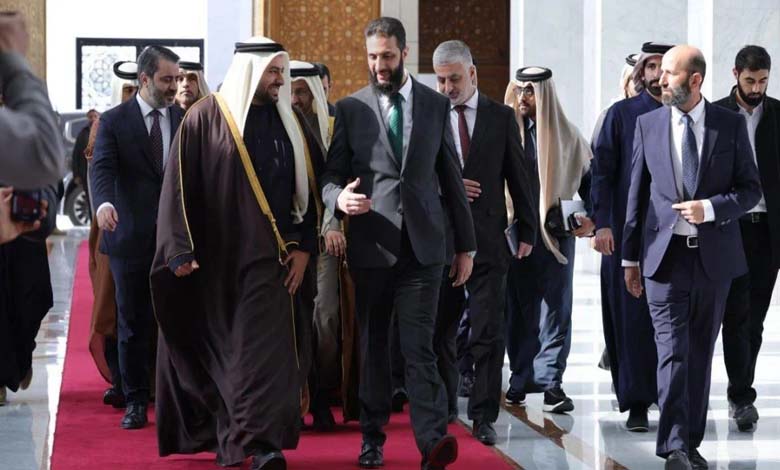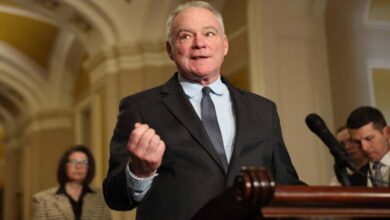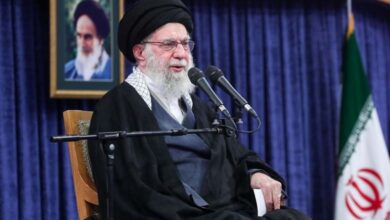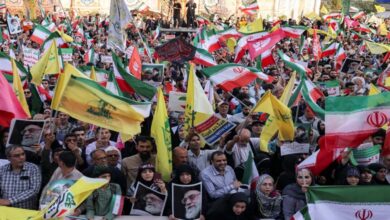Qatar Fully Supports Al-Sharaa Administration

Extensive discussions between Qatar’s Prime Minister and Al-Sharaa cover several issues, primarily economic, as Qatar continues to support the new Islamic leadership in Syria.
Qatar’s Prime Minister and Foreign Minister, Mohammed bin Abdulrahman Al Thani, stated from Damascus on Thursday that his country is ready to assist the new Syrian authorities in restoring key infrastructure providing public services, including electricity. Doha aims to secure a prominent role in Syria, expand its influence, and play a broader part in reconstruction efforts in partnership with Turkey, a main supporter of the new administration.
-
Europe and Syria After al-Assad: “A New Political Beginning”
-
French and German Conditions for Supporting the New Syrian Leadership
Qatar remains the only Gulf state that consistently opposed former president Bashar al-Assad throughout the Syrian conflict. After the new administration assumed power in Damascus, Qatar was the second country, following Turkey, to reopen its embassy in the Syrian capital.
In a joint press conference with the leader of the new administration, Ahmad Al-Sharaa, during his visit to Damascus, the Qatari official said, “We extend our hand to our Syrian brothers for a future partnership that will benefit both brotherly nations.”
-
Bashar Al-Assad: Details of the Final Days in Syria
-
Qatar Moves in All Directions: Mediator in Appearance, Interests Behind the Scenes
He added, “The current needs are to sustain public services for the Syrian people, which are essential needs.” He clarified, “Practically, we will also provide the necessary technical support to restart essential infrastructure and support the electricity sector, starting with supplying Syria with 200 megawatts of power, with gradual increases in production.”
This announcement follows a statement by the new Syrian authorities earlier this month that two power-generation ships, one Turkish and the other Qatari, would arrive in Syria to enhance the power supply amidst prolonged outages of up to 20 hours a day.
-
A New Study Outlines Possible Scenarios for Syria’s Future
-
Hama Countryside: Massive Syrian Army Reinforcements and “Mass Fleeing” of Militants
Qatar’s Minister of State for Foreign Affairs, Mohammed Al-Khulaifi, visited Damascus on December 23. Doha was the first country to send a high-level delegation to the Syrian capital shortly after factions led by Hay’at Tahrir al-Sham toppled Bashar al-Assad’s regime, who fled to Moscow under Russian arrangements.
Qatar, a close ally of Turkey, shows keen interest in building strong relations with Syria’s Islamic leadership, despite regional and international concerns over the country’s future under this administration. Doha has consistently collaborated with Islamic forces in the region and supported their promotion.
-
Latest Developments on the Syrian Scene
-
Turkey Strengthens Military Presence at Contact Points with Syrian Regime Forces
Qatar’s Ministry of Foreign Affairs spokesperson, Majid Al-Ansari, announced the Prime Minister’s visit on his X account, stating, “Sheikh Mohammed bin Abdulrahman Al Thani is arriving in Damascus today (Thursday),” adding that “the visit reaffirms Qatar’s unwavering stance in supporting our brothers in Syria.”
Qatar has pledged significant funding to cover public sector salaries in Syria as part of its efforts to solidify its influence in the country and seize investment opportunities in reconstruction, following years of support for opposition factions.
-
Anticipated Saudi Role in Syria through Resolution of Constitutional Committee Crisis
-
The UAE completes normalization of relations with Syria by appointing its first ambassador to Damascus
Two days prior to Al-Khulaifi’s visit to Damascus, Doha reopened its embassy in the Syrian capital, raising its national flag once again after it was closed in July 2011 following an attack by al-Assad regime supporters in response to Al-Jazeera’s coverage of the Syrian revolution. Earlier this month, Doha hosted the Foreign Minister of the new Syrian administration, al-Assad Al-Sheibani.
Damascus now hosts daily visits from regional and international officials meeting with the leader of the new Syrian administration, Ahmad Al-Sharaa, to explore prospects for the next phase.
-
Following in the footsteps of the UAE, Egypt restores relations with Syria to end al-Assad’s international isolation
-
Saudi Arabia does not rule out Syria’s return to the Arab League
Shortly before the Qatari Prime Minister’s visit, Al-Sharaa welcomed Spanish Foreign Minister José Manuel Albares at the Presidential Palace in Damascus on Thursday, following the reopening of Spain’s embassy in the capital, closed since March 2012.
Spanish Foreign Minister José Manuel Albares stated from the embassy: “It is an honor for me to be here in person. Raising the Spanish flag once again is a sign of hope for Syria’s future and a commitment we are making to the Syrian people for a better future.”
The minister reaffirmed his country’s support for Syria while emphasizing the importance of respecting the rights of all groups in Syria, including women and religious and ethnic minorities.
Before traveling to Damascus, the Spanish official highlighted that the steps taken by the new Syrian administration were “positive” so far. He added, “We see that the new administration in Syria does not use violence, has finally ended the bloody dictatorship (of the Assad regime), and emptied the prisons. These are signals that Spain welcomes.”
-
How did Qatar get involved in the bankruptcy of Lebanon? Financial and military funding for the havoc militias
-
Qatar pushes its mercenaries to ignite war in Europe
Albares also stated that Spain is willing to support Syria by providing humanitarian aid to ensure the country’s territorial integrity and sovereignty while addressing the needs of the Syrian people who have suffered greatly over the last decade.
He considered that “the new administration is primarily a military movement for now, and it must transform into a political movement.” If this transformation occurs, Spain will always stand by Syria and its people and do everything possible to rally European Union support for Syria.
-
Turkey to transfer Syrian mercenaries from Libya to Afghanistan
-
In coordination with Qatar – Turkey decides to transfer mercenaries from Libya and Azerbaijan to Afghanistan
Regarding lifting sanctions imposed on Syria under the al-Assad regime, the Spanish minister explained that these sanctions were imposed for specific reasons. He added, “If the reasons for these sanctions disappear and the objectives we sought to achieve through these sanctions are met, then they will no longer have any purpose.”
The minister also clarified that during his visit to Damascus, he aimed to convey Spain’s vision of what Syria’s future should look like, reaffirming Spain’s aspiration for a peaceful and inclusive Syria to remove the sanctions.
-
Qatar Sponsors Deal to Release Iranian Revolutionary Guard Prisoners in Syria
-
This is how Qatar Charity became a tool to finance Brotherhood groups and their projects
Six EU member states, including Spain, have called for a temporary suspension of sanctions imposed on Syria.
According to a document reviewed by Reuters, this suspension would cover the transport, energy, and banking sectors.
-
Tamim Ben Hamad, “Governor of Syria”… Hamdeen is the organization that runs Qatar
-
Turkey bombs Syrian Democratic Forces areas north of Syria’s Racca
The document, signed by Germany, France, the Netherlands, Spain, Finland, and Denmark, recommends that “the European Union immediately begin adjusting its sanctions regime,” while emphasizing the need to maintain sanctions against members of the former Syrian regime and their supporters.
The document specifies that any easing of sanctions will depend on the Syrian authorities respecting human rights and minorities, with the possibility of reimposing sanctions in case of non-compliance.
-
The Times : “Qatar pumped millions of dollars to Jabhat al-Nusra terrorists in Syria”
-
UAE FM: The Return of Syria to Arab League is inevitable
-
After the army, Turkey intends to send Syrian mercenaries to Qatar












